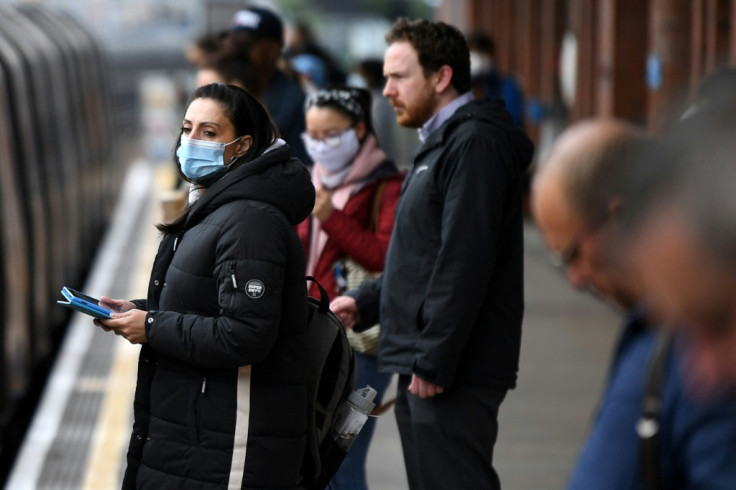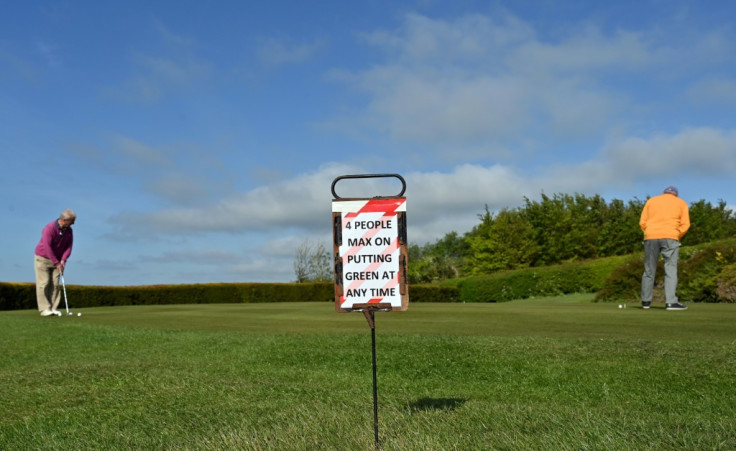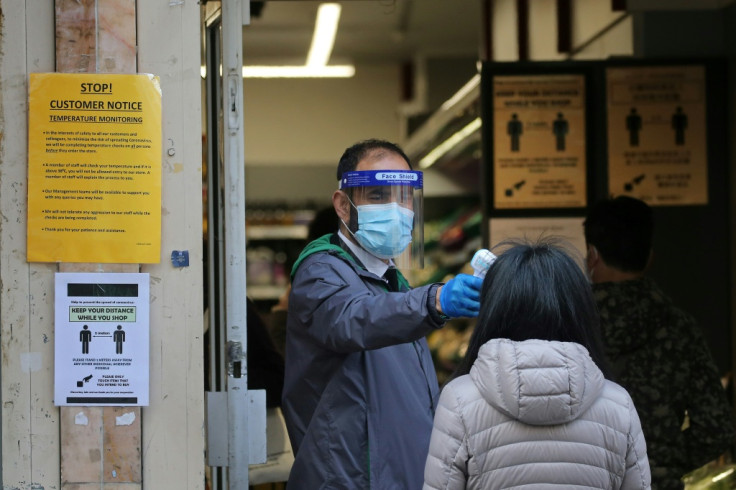Work and exercise restrictions ease in England
The partial lifting of restrictions comes despite concern over Britain's death toll from the virus -- the second highest in the world.
People living in England were allowed on Wednesday to leave their homes, including to go to work, in the first stage of an easing of the seven-week coronavirus lockdown.
The partial lifting of restrictions comes despite concern over Britain's death toll from the virus -- the second highest in the world -- and confusion about the new rules.
The Office for National Statistics says more than 36,000 people have died and mortality rates remain high in care homes, despite an overall downward trend in cases, deaths and hospital admissions.
The official government toll, which does not include all care home deaths, stands at over 32,000.
The health ministry announced another 494 deaths on Wednesday in its latest daily update, a dip on the previous day's figure.

Prime Minister Boris Johnson has urged millions unable to work from home to return to their jobs under the new guidelines, which do not apply in Scotland, Wales or Northern Ireland.
Transport Minister Grant Shapps said those returning to the workplace to "cycle or walk" if possible.
"We are asking people to be very sensible and not flood back to public transport," he told Sky News.
"Even with all the trains and buses back to running when they are, there will not be enough space."
But in London, traffic was heavier and Transport for London said passenger numbers on the underground were up 8.7 percent up on the same time last week.
At Canning Town train station in east London, people -- some with face coverings but many without -- were seen queueing during rush hour.

Elsewhere, full double-decker buses were seen plying the streets.
Citizens are also able to drive to the countryside, play tennis or golf, see one friend in a public space or visit a garden centre.
But they must at all times remain two metres (six feet) away from other people, risking a ?100 ($123, 113-euro) fine if they break the rules.
Llanymynech Golf Club, which spans the border between England and Wales, was fully booked on Wednesday after reopening under the English relaxation of measures.

"I've not noticed anybody not abiding by the rules," club secretary Sian Whiteoak told AFP, noting they had put up signs and given members copies of the guidelines.
She said players were excited to be back playing again -- joking that some spouses were also relieved.
"Quite a lot of spouses are pleased their partners are getting back to playing again, whether they are gents or ladies, judging by quite a lot of comments."
Meanwhile garden centres were adopting a similarly cautious approach, posting signs and limiting customer numbers, as they saw a brisk trade.
"For the last six or seven weeks we've done nothing else but potter about the garden," said Stuart Coomber, visiting his local store in Kent, southeast of London.
"(I) want some plants to fill a new flower bed up, and obviously get out of the house for five minutes."
The British government -- already on the back foot about the extent of testing and providing protective equipment -- has come under fire for sending "mixed messages" about reopening at this stage.
Critics point out that while people are allowed to welcome cleaners and nannies into their homes, family members and loved ones are still banned.
At the same time, house moves and viewings are allowed for the first time since the country shut down on March 23, with more than 450,000 buyers and renters caught in limbo.
The easing of restrictions comes as the government attempts to revive the economy, which fell two percent in the first quarter, its worst drop since the 2008 financial crisis.
In Scotland, Wales and Northern Ireland, people are still being asked to stay at home, opening a political rift between London and the devolved administrations in Edinburgh, Cardiff and Belfast.
Scotland's nationalist First Minister Nicola Sturgeon has been particularly critical, calling on businesses to ignore the "premature" advice to return to work.
The leader of her party in the UK parliament, Ian Blackford, accused Johnson of "risking weeks of progress" in tackling the virus by reopening too soon.
Unions meanwhile have warned of a "recipe for chaos" in the workplace as employers try to accommodate returning workers while complying with social distancing rules.
Others have claimed that lower-paid, lower-skilled workers in sectors such as construction and manufacturing are being put at greater risk than white-collar staff able to stay at home.
Copyright AFP. All rights reserved.
This article is copyrighted by International Business Times, the business news leader



















